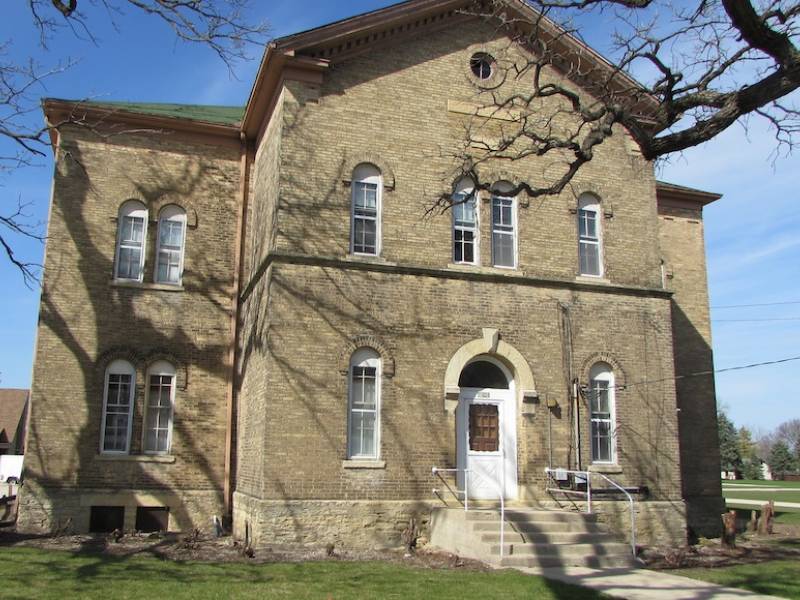Free event with the cost of museum admission....
Many local landmarks are in jeopardy
Everyone loves history, right? Most Americans put it in the same category as mom, as apple pie.
The question is, how will you react when someone – likely a perfect stranger – wants to take a bite of your pie? Do you simply slide the plate over and go back to the counter for another slice? What if the pie is all gone and there’s nothing left?
OK, I’ll stop with the food analogy. (Besides, it’s making me hungry.) The point is, our past is disappearing faster th…
Gone.
It is not for lack of trying by preservationists. Organizations such as Landmarks Illinois and the National Trust for Historic Preservation strive each year to save endangered structures. The latter has identified more than 250 sites since 1988, and managed to save most of them. Landmarks also has enjoyed some success, saving a third of the properties placed on its Most Endangered List with the much of the balance still clinging tenaciously to existence.
“The key is organizing and trying to have a louder voice,” said Lisa DiChiera, director of advocacy for Landmarks. “Obviously, strength in numbers helps. When public officials feel like there is just one person who cares about who is carrying the water, it’s problematic.”
Jake Marino, president of the Huntley Historical Society, noted that four, 19th-century buildings are under threat in town … right now. They include the 1875 high school building on Main Street, an 1860 school building that was moved off the same site to a lot on Church Street and two houses adjacent to the American Legion on Coral Street – the John Kelley house that dates to 1861 and a pre-Civil War Jordi house.
I can’t help put wonder whether Joni Mitchell is flying across the sky nearby – in a “Big Yellow Taxi,” of course.
The reasons for apathy are many and varied. Marino believes his hometown wants more of a historic look than a historic identity. And many of the residents, recent transplants from elsewhere, lack the roots necessary to bind folks to Huntley’s past.
But certainly there are many other considerations, not the least of which is money.
“There needs to be a feeling among people in the business community that the property will contribute to what they’re trying to do,” DiChiera said. “It takes vision to see what it can be rather than what it is … and then you still have to convince a local community that it is an asset. It’s not just a relic. It has an opportunity to have a new life.”
Unfortunately, many of the buildings under threat in our area are not on par with Chicago’s Dearborn Station or the 1911 North Western train station, which once featured terra cotta friezes manufactured at TC Industries in Crystal Lake. Often what we’re talking about here are of a more pedestrian nature – a school here, a farmhouse there, a camp along a river.
The fact that Washington Elementary School in Marengo was designed by the 19th Century Chicago architectural firm of Dankmar Adler and Louis H. Sullivan failed to matter in the end. The lot where an iconic stone arch once beckoned students inside, now is home to the golden arches.
Progress supersized.
The 2008 legislation, sponsored by State Rep. Jack Franks, designated every May as “Look at Local History Month.” The resolution states “historic preservation is an effective tool for managing growth, revitalizing neighborhoods, fostering local pride and maintaining community character, while enhancing livability …”
I couldn’t agree more. Toward that end we’ve posted a brochure detailing a whole slew of activities on our website. They include the historical society museum’s grand opening and craft beer tasting at 6 p.m. Friday, a plaquing ceremony May 8 at the former Harmony School and one of my favorite events – Spring Grove’s annual historic re-enactment in old Burton Town Hall. This year actors will present five historic, Prohibition-era vignettes.
“I think it (Local History Month) kind of forces people and historians to actually do something,” said Laura Frumet, Spring Grove village clerk and local historian. “We have the [county] museum and places where people can go. But this is something on top of that.”
- Kurt Begalka
Published in the April 24, 2016, edition of the Northwest Herald.
 © 2025 MCHS- All Rights Reserved.
© 2025 MCHS- All Rights Reserved.















